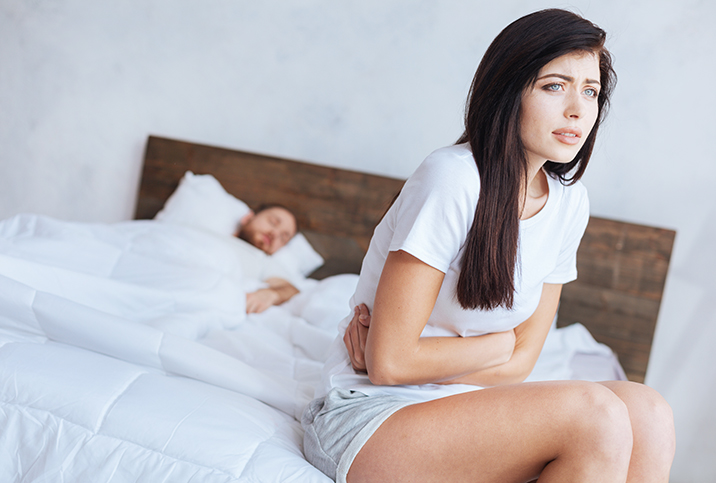Sick After Sex: Postorgasmic Illness Syndrome

It’s a cruel trick of nature to follow one of the best feelings on earth with a week of suffering, but that’s the case with postorgasmic illness syndrome (POIS).
This recently discovered condition is theorized to be an autoimmune response to secretions in the prostate that are released during ejaculation. Postorgasmic illness syndrome causes sufferers to avoid sex, masturbation and physical intimacy of any kind, due to the dread of a potential weeklong autoimmune response.
Because POIS isn’t well understood, though, finding resources to identify and manage the condition can prove difficult. However, a small but growing number of men have found ways to effectively manage the pain and illness brought on by this phenomenon.
Also, as awareness of postorgasmic illness syndrome spreads, new developments in scientific research will likely translate to effective treatment options.
POIS definition
Postorgasmic illness syndrome was initially thought to be a somatic illness, a type of hypochondria that occurs when individuals’ thought processes lead them to believe they are ill.
Multiple reports of near-identical symptoms from countries around the world, however, have led to recognition of POIS as a real condition. There are currently two types of POIS, the first being in individuals who experience unpleasant autoimmune responses at the onset of sexual maturity, and the second in those whose symptoms manifest later in life.
Though not fully understood why some men’s immune systems react negatively to ejaculation, scientists have pinpointed the manifestations of postorgasmic illness syndrome to five prominent symptoms. This cluster of effects begins about 30 minutes after a man ejaculates and can last up to one week:
- Flu-like symptoms
- Pains and aches in major muscle groups
- “Brain fog” that disrupts the ability to focus
- Tingling sensations in one’s extremities
- Severe mood changes
POIS symptoms vary among the afflicted, but the issues above are reported by most patients.
Postorgasmic illness syndrome patients often experience difficulty being diagnosed, because of the uncommon nature of their illness and the lack of evidence to support that an immune response to ejaculation can directly cause pain and discomfort.
Treatment of POIS
There’s not much consensus in the scientific community regarding the curability of POIS. A clinical research study reported that one man was successfully cured using a testosterone-boosting medication, but the method has yet to be replicated with other patients.
Most doctors are not aware that postorgasmic illness syndrome exists, and many sufferers report being told that their symptoms are most likely somatic, causing them to be referred to sex therapists or mental health specialists.
With scientific and medical juries unconvinced, several online communities have formed around shared experiences of postorgasmic illness syndrome symptoms and include anecdotal posts of benefits found from over-the-counter supplements, such as:
- GABA
- L-Tyrosine
- COQ10
- Ashwagandha
These supplements have little scientific backing for their effectiveness, so you should consult a physician before deciding to try any of these options.
Get help for POIS
It’s important to remember that without consulting a doctor, a self-diagnosis of postorgasmic illness syndrome may prove incorrect. Symptoms of POIS could turn out to be a number of different problems, such as prostatitis or a urinary tract infection (UTI).
If it seems like you or your partner are experiencing pain and discomfort after ejaculation, seek medical attention.
Postorgasmic illness syndrome remains an elusive and little-understood illness, but with time, better treatment options and an answer to why POIS occurs will surface.
Giddy Notice: Our medical experts have informed us that few supplements of this nature have been approved by the Food and Drug Administration (FDA). That is to say that statements and claims made about the efficacy or possible health benefits of these unapproved supplements have neither been evaluated nor reviewed by the FDA for safety and effectiveness. Furthermore, any statements or claims regarding the supplements are not intended to diagnose, treat, prevent or cure any disease. Our medical experts advise that before you use a supplement in any way, first consult with your healthcare provider to ensure you have full knowledge of appropriate dosages, if any, as well as any potential side effects or interactions with any prescription medications you’re already taking.


















